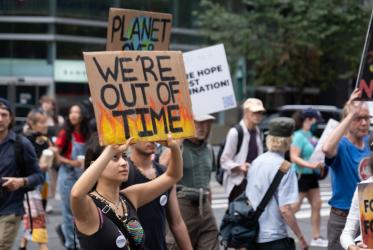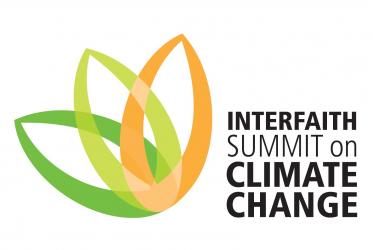Displaying 1 - 14 of 14
20 September 2023
Churches march in New York City to declare no faith in fossil fuels
18 September 2023
WCC remembers lost colleagues
24 May 2019
Indigenous faith leaders reflect on resilience and climate change
23 September 2014
Prayers, reflections and action during “Time for Creation”
15 September 2014
Churches engage in development dialogue on Africa
06 March 2013







